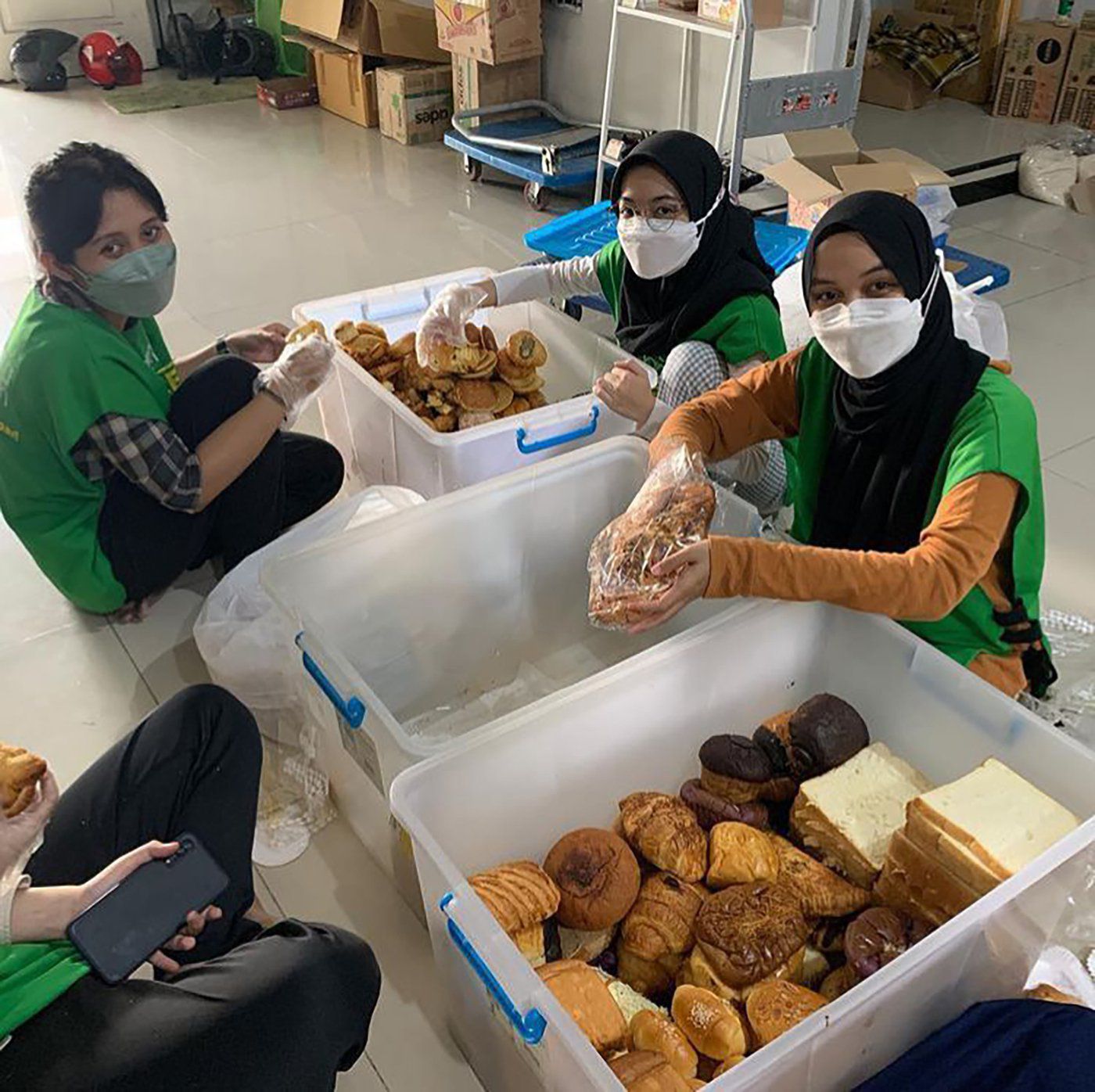By Vrameswari Omega Wati, Elisabeth A.S. Dewi & Yulia Indrawati Sari, Catholic University of Parahyangan
BANDUNG, June 14 – Every Indonesian throws away an average of 2.1 million rupiah worth of food each year. While that might not sound like much, when it is multiplied by 273 million people, the total is astronomical: close to 330 trillion rupiah. Food waste is the largest category of waste in Indonesia.
Despite this, it remains a little-known issue, leaving charity groups to find a solution.
Food waste is a ‘wicked’ problem: it is unstructured, cross-cutting and relentless. Its exact causes and impacts are hard to identify, numerous groups are involved from farm to fork, and commitment from individuals, businesses and agencies is needed to solve it.
The economic loss from food waste costs Indonesia as much as 551 trillion rupiah per year, according to the Indonesian government’s National Development Planning Agency.
Food that is never eaten wastes the resources used to grow it, harvest it and bring it to market. In landfills, food waste decomposes into methane gas, which contributes to climate change.
It is also a more immediate danger: 12 years ago an explosion of methane gas from decomposing food waste caused a landslide at the Leuwi Gajah landfill, killing 143 people.
Plastic waste has a much higher profile. But changes in food packaging have added to the complexity of waste management. The shift from traditional to modern, non-biodegradable food packaging was made to meet consumer needs on a large scale and make packaged food more durable.
But it happened without adequate waste-management infrastructure. Several attempts to campaign for programs to reuse, reduce, recycle and also sort organic from non-organic waste have not resolved waste-management problems.
The National Development Planning Agency has acknowledged the issue of food waste and loss and has introduced a framework to address it, integrated into its Low Carbon Development policy as a priority programme for 2020–24.
But with government intervention not yet visible, social initiatives such as food banks, food sharing and utilising technology applications have sprung up to fill the gap. Their big, shared goals are to rescue and redistribute decent food, avoid sending leftovers to landfill and feed the many people in Indonesia who are undernourished.
Garda Pangan is a pioneer in food management. As in many places, it is customary in Indonesia to serve a lot of food at weddings, which results in a lot of waste.
Garda Pangan collects the surplus for distribution to people in need or processes it into compost or animal food. It also runs a gleaning programme in the agricultural sector, collecting crop residues that are still edible.
Another example is Surplus Indonesia, which has developed an app to connect the general public with partner shops or restaurants that have surplus or unsold food.
FoodCycle distributes surplus food from restaurants, weddings and vendors of fast-moving consumer goods to people in need. It also reprocesses leftover food into new food products.
Lack of widespread information about these social movements and low awareness in the general public regarding food waste remain as challenges, but these social initiatives have fostered solidarity among those in the know as they strive to unravel the wicked problem. The vision of achieving a zero-waste lifestyle while helping to eradicate hunger may one day be achievable.
Vrameswari Omega Wati, Elisabeth A.S. Dewi and Yulia Indrawati Sari are lecturers in the International Relations department of Parahyangan Catholic University.
Article courtesy of 360info.








